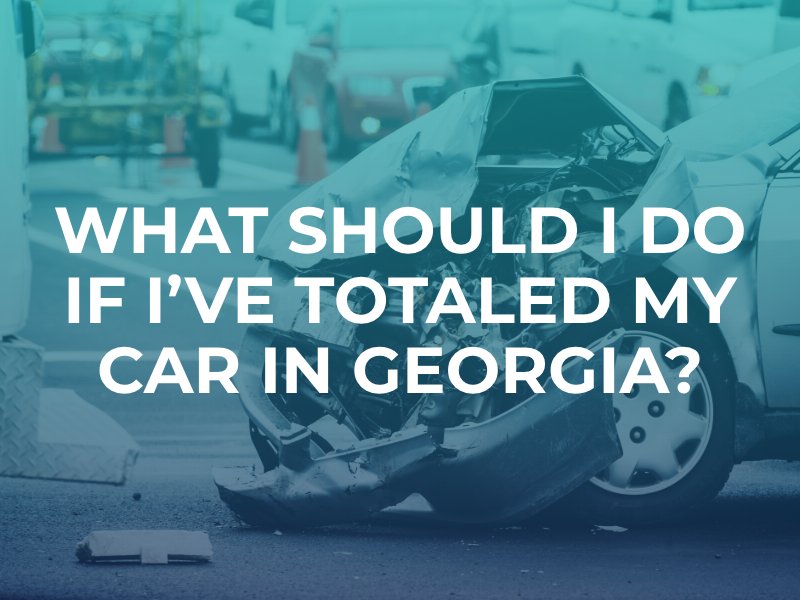What Should I Do If I’ve Totaled My Car In Georgia?
Getting into a car accident can be incredibly scary for those involved. If you have been told that your vehicle has was totaled in an accident, you have various options. Here, we want to discuss how insurance works in these situations and whether or not you have other options when it comes to dealing with a totaled vehicle.

What does “totaled” mean in a Georgia car accident?
During the latest reporting year in Georgia, there were around 400,000 total car accidents reported in the state. Thousands of people were injured, and more than 1,500 people lost their lives. What many people overlook, but perhaps one of the most important parts of the car accident process, is recovering compensation for property damage.
Many people are told that their vehicle has been totaled in the aftermath of a crash. When most people hear that a vehicle has been totaled, they think there has been tremendous damage. However, that is not necessarily the case. A vehicle is considered “totaled” when the damage sustained in a car accident exceeds the total value of the vehicle itself.
When we look at this definition, whether a vehicle is totaled or not may have little to do with the severity of the accident. Being totaled has more to do with what the vehicle’s actual cash value is. For example, a new vehicle that is appraised at $50,000 would have to sustain a significant amount of damage in order to be considered totaled. Conversely, a vehicle that is appraised at $5,000 would be considered totaled after sustaining much less damage.
Will insurance cover this expense?
In Georgia, most people will turn to insurance carriers to cover property damage expenses, including when their vehicle is totaled. In this state, the minimum insurance requirement for property damage is $25,000.
The insurance carrier, whether yours or the at-fault driver’s, will assess the total damages as well as the value of your vehicle. If a vehicle is considered a total loss, the law in Georgia requires the insurance company to do one of two things:
- Pay the cash equivalent of the value of the car. This will be the actual value of the vehicle less any deductibles on your policy.
- Replace the insured vehicle. The insurer could choose to purchase a replacement vehicle outright. The vehicle must be essentially the same as the one that was totaled (including same make, model, and close mileage).
How is the actual value determined?
There can be a dispute over the actual value of a vehicle. Insurance adjusters will rely on certain standard tools to establish the actual cash value of the vehicle. The actual value has little to do with what you paid for the car and does not take into account the amount you may still owe on the vehicle. If you still owe money on the vehicle, any settlement will have to be used to pay off the remaining loan balance first. If you are awarded $9,000 for the value of the vehicle but still owe $5,000, you will only receive $4,000 in total after the loan is paid.
Many people who buy new cars also purchase GAP insurance, a policy that makes up for the difference between what is owed and the actual cash value of a vehicle. This type of insurance can be beneficial for those who crash fairly new vehicles because new vehicles depreciate quite a bit in the first year. Having GAP insurance can help if an insurance check is less than what you actually owe for your car.
What you can do
At some point in the settlement process, you will be asked to sign a document saying that you agree with the price that the insurance carrier has decided your car is worth. You should do your homework before you agree with any value that the insurer has agreed upon for your vehicle.